Time to Think may refer to:
- Time to Think (Mo Foster album), 2002
- Time to Think (The Kingston Trio album), 1963
- Time to Think (Sarah Whatmore album), 2009
- Time to Think (book), a 2023 book by Hannah Barnes
Time to Think may refer to:
Singularity or singular point may refer to:

Christopher Cross is an American singer-songwriter and guitarist from San Antonio, Texas. He won five Grammy Awards for his eponymous debut album released in 1979. The singles "Sailing" (1980), and "Arthur's Theme " peaked at number one on the U.S. Billboard Hot 100. "Sailing" earned three Grammys in 1980, while "Arthur's Theme" won the Oscar for Best Original Song in 1980.

Think Tank is the seventh studio album by the English rock band Blur, released on 5 May 2003. Continuing the jam-based studio constructions of the group's previous album, 13 (1999), the album expanded on the use of sampled rhythm loops and brooding, heavy electronic sounds. There are also heavy influences from dance music, hip hop, dub, jazz, and African music, an indication of songwriter Damon Albarn's expanding musical interests.

Who Do We Think We Are is the seventh studio album by the English rock band Deep Purple, released on 12 January 1973 in the US and in February 1973 in the UK. It was Deep Purple's last album by the Mark II line-up with singer Ian Gillan and bassist Roger Glover until 1984’s Perfect Strangers.
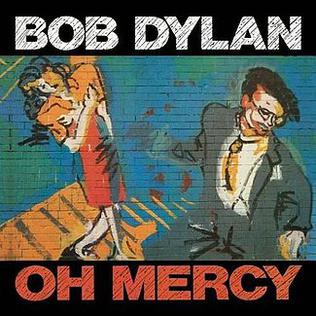
Oh Mercy is the twenty-sixth studio album by American singer-songwriter Bob Dylan, released on September 12, 1989, by Columbia Records. Produced by Daniel Lanois, it was hailed by critics as a triumph for Dylan, after a string of poorly reviewed albums. Oh Mercy gave Dylan his best chart showing in years, reaching No. 30 on the Billboard charts in the United States and No. 6 in the UK.
Sex is the biological distinction of an organism between male and female.
Rock and roll is a genre of popular music that originated and evolved in the United States during the late 1940s and early 1950s.

Heilige Lieder is the ninth studio album by German rock band Böhse Onkelz, released 1992 through Bellaphon Records.
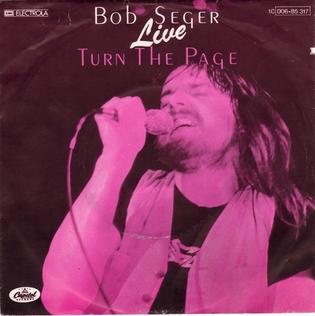
"Turn the Page" is a song originally recorded by Bob Seger in 1971 and released on his Back in '72 album in 1973. It was not released as a single until Seger's live version of the song on the 1976 Live Bullet album got released in Germany and the UK. The song became a mainstay of album-oriented rock radio stations, and still gets significant airplay on classic rock stations.

"I Think I Love You" is a song by Tony Romeo, written as the debut single for fictional musical TV family the Partridge Family, released in August 1970, a month prior to the debut of the ABC-TV musical sitcom The Partridge Family starring Shirley Jones and featuring David Cassidy, both of whom appear on the record, with Cassidy as lead vocalist. The single topped Billboard's Hot 100 for three weeks in November and December 1970 and later was certified by NARM as the best-selling single of 1970.
A diary is a form of personal journal.
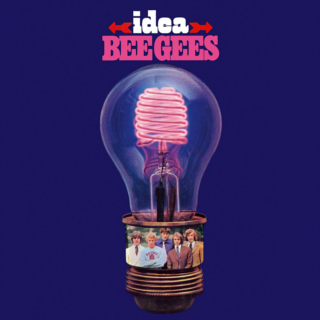
Idea is the fifth album by the Bee Gees. Released in September 1968, the album sold over a million copies worldwide. The album was issued in both mono and stereo pressings in the UK. The artwork on the Polydor release designed by Wolfgang Heilemann featured a "beehive" neon lightbulb with a group photo in its base, while the North American ATCO release designed by Klaus Voormann featured a composite head made from each band member. It was their third internationally released album – the first two albums being released only in the Australian market.

"I Think We're Alone Now" is a song written and composed by Ritchie Cordell that was first recorded by Tommy James and the Shondells. It was a major hit for the group, reaching number 4 on the US Hot 100 in April 1967. It finished at No. 12 on Billboard magazine's year-end singles chart for 1967.
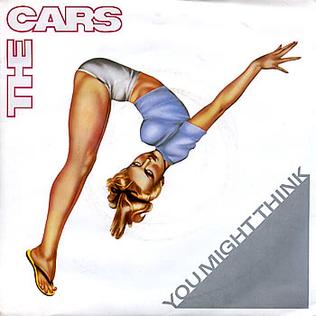
"You Might Think" is a song by American rock band the Cars from their fifth studio album, Heartbeat City (1984). The track was written by Ric Ocasek and produced by Mutt Lange and the Cars, with Ocasek also providing the lead vocals.
Who Do You Think You Are may refer to:
Resilience, resilient, or resiliency may refer to:
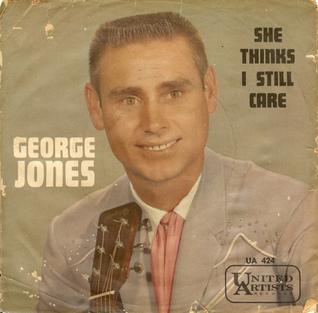
"She Thinks I Still Care" is a country song written by Dickey Lee and Steve Duffy. The song was recorded by multiple artists, including George Jones, Connie Francis, Anne Murray, Elvis Presley and Patty Loveless.
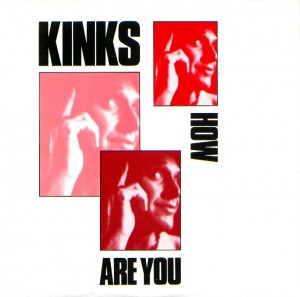
"How Are You" is the seventh track on the album, Think Visual, released by The Kinks in 1986. It was written by Ray Davies.

"Rocket Man" is a song written by English musician Elton John and songwriter Bernie Taupin and performed by John. It was originally released on 17 April 1972 in the US, as the lead single to John's album Honky Château. The song first charted in the UK on 22 April, rising to No. 2 in the UK Singles Chart and No. 6 in the US Billboard Hot 100, becoming a major hit single for John.
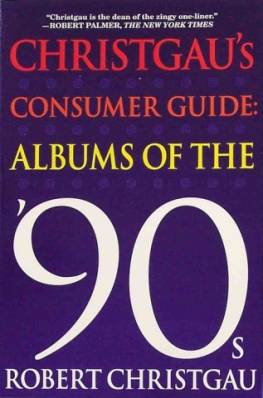
Christgau's Consumer Guide: Albums of the '90s is a music reference book by American music journalist and essayist Robert Christgau. It was published in October 2000 by St. Martin's Press's Griffin imprint and collects approximately 3,800 capsule album reviews, originally written by Christgau during the 1990s for his "Consumer Guide" column in The Village Voice. Text from his other writings for the Voice, Rolling Stone, Spin, and Playboy from this period is also featured. The book is the third in a series of influential "Consumer Guide" collections, following Christgau's Record Guide: Rock Albums of the Seventies (1981) and Christgau's Record Guide: The '80s (1990).